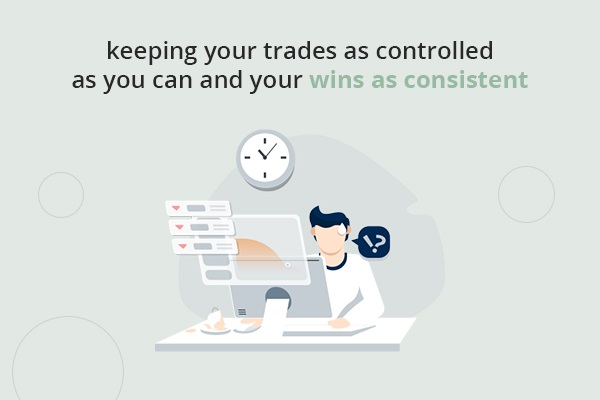Forex Education Trading Method Trading Motivation

Deaching of the great explorer of the truth the builder

If you’re a Forex trader trying to improve or optimize your strategy, there is a great chance that you have come across advertisements for trading tools. If you’ve ever wondered about whether or not they are any good and if you should use them, this blog is for you.
Let’s get right to it.
Can tools improve your performance as a trader?
Yes, they can. That is the simple answer to that question.
In Forex, or any other kind of trading, knowledge is everything. Using tools that can inform your analysis can be very useful for that reason.
Your trade will most likely be only as good as your analysis is. It is possible that you might get lucky one or two times without having properly analyzed the market but that is gambling, it’s not trading. And if you do it too much, it can cause major losses.

If you want to make a career out of trading then you want to be consistently profitable. Even if, as a day trader, you are not aiming to capture a lot of pips, keeping your trades as controlled as you can and your wins as consistent as you can would mean success in the long run. At the end of the day, your overall losses over a given period of time compared to your overall wins decide whether you have been profitable or not.
Why use them?
As stated above, you can have ten small wins but one big loss can wipe all that work out. So risk management is important. While there are a lot of ways to manage risk, one important way is to inform your analysis.

In order to treat Forex trading like work, you need to have the same kind of discipline as you would practice in any other job.
This discipline is most easily practiced when you have a strict setup. This setup cannot be created randomly. Having a set platform, technical indicators, news sources, and trade recording and analysis systems are all integral parts of it.
What kind of tools do you need?
Some traders go for automated trading or copy trading to make use of this, but that is not for everyone and also is a topic for another time. When I say tools I mean tools like the following:
Even having a good computer with a solid internet connection is a tool.
Everything that keeps you organized and helps you become more proactive as a Forex trader is a tool.

The bottom line is that you shouldn’t go into trades without a plan or without knowing why you are making the moves you’re making. That is the difference between an experienced trader and an amateur trader.
Expert traders don’t enter a trade unless they know what they are getting into. They don’t make shots in the dark.
You can also use take at our Forex tool recommendations if you are looking for suggestions.
Are Forex signals useful?
I would like to talk about Forex signals as a tool because there is a lot of confusion about them especially among new traders.
Some people use signals for copy trading, others use automated trade signals and then there are signals that are meant as suggestions.
For copy trading or automated trading, you need to be sure that the signals you are getting are reliable and you need to test them out over a period of time before trusting them completely with your trading account.

Signals that are offered as suggestions should be taken as suggestions. There is no obligation to follow them so it is best if you use signals as assistants to your analysis.
For example, when you get an entry level or stop loss suggestion for a trade, see if that matches what the charts are telling you. If you haven’t started your analysis for that pair yet, test that level out like you would if it had been a result of your own analysis and only apply when you are confident.
At the end of the day, any tools you use should make you more confident about your trades. As long as a tool fulfills that purpose, it will be useful for you and it will make you a better trader.
This site uses Akismet to reduce spam. Learn how your comment data is processed.
Fine jewelry, watches and giftware will almost certainly attracts you...
Leave A Comment